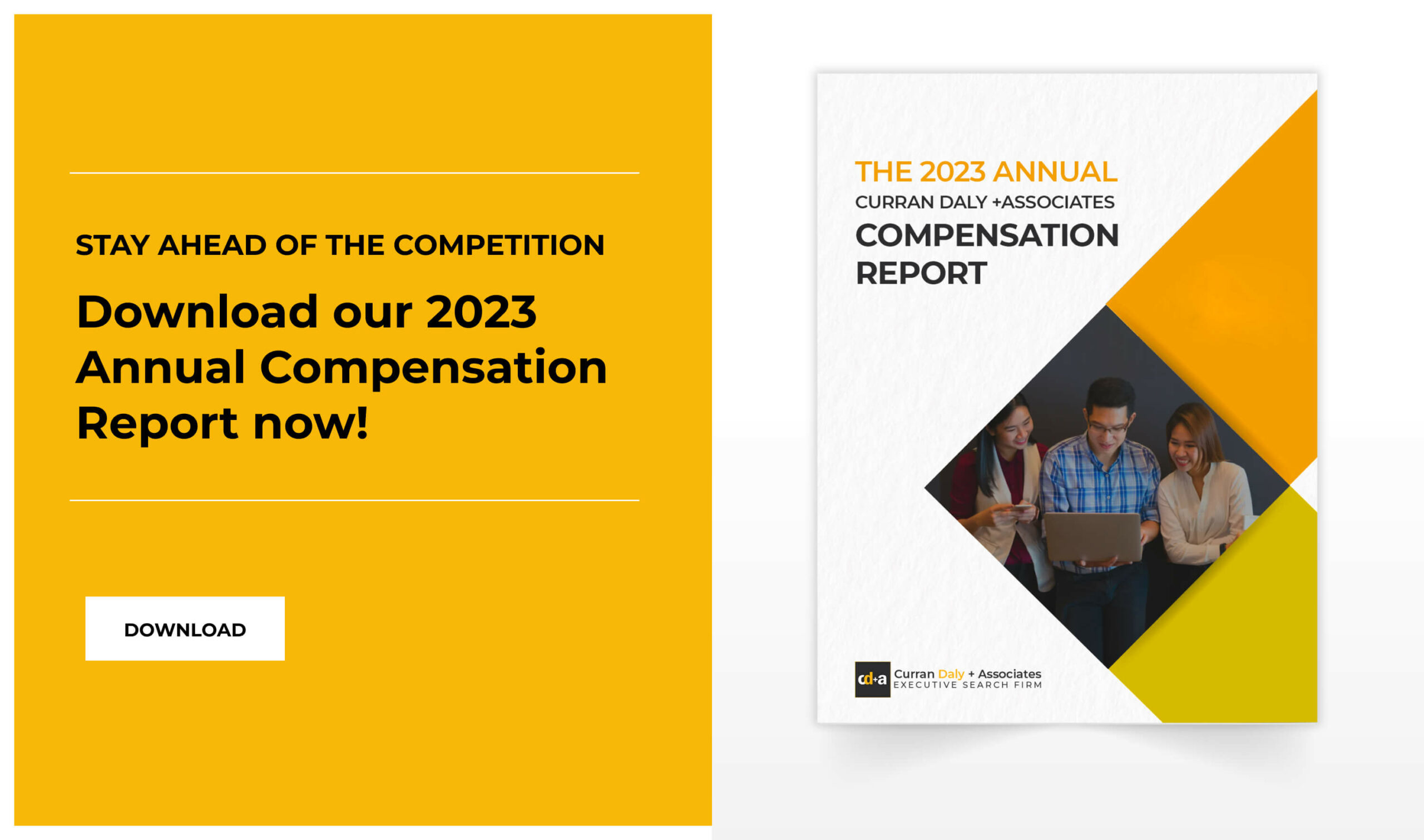- When hiring an executive-level candidate, looking for a candidate with strong leadership potential is crucial.
- The interview process should include gathering essential information about the candidates, preparing questions in advance, and creating an open discussion environment.
- To assess candidate fit, you should understand your needs, check references, conduct personality tests, and ask behavioral questions.
When interviewing executive-level or C-suite candidates, the process is often more complex and demanding than it is when hiring for other roles. It’s essential to have a well-defined plan in place that ensures you hire the right candidate who will make an impact on your organization.
In this article, we’ll look at the things to look for in an executive-level candidate, the interview process, and assessing for company fit.
What to Look for in Executive-Level Candidates
When you’re looking to fill an executive-level position, you want to ensure that the candidate is well-suited. After all, these positions require specific skills and qualities that can be difficult to find. But with the right approach, you can quickly identify which candidates are a good fit for your organization.
A study by Hogan Assessments found five common personality traits companies find in senior leaders: dominance, influence, conscientiousness, neuroticism, and agreeableness. While these traits may not be exhaustive, they provide a good starting point when assessing candidates.
Dominance is characterized by decisiveness, confidence, and the ability to take charge. Leaders with this trait often make quick decisions and aren’t afraid of change.
Influence is about charisma and the ability to get things done through others. Leaders with this trait are persuasive and know how to get people on board with their vision.
Conscientiousness is about being detail-oriented and organized. Leaders with this trait are typically reliable and can be counted on to follow through on their commitments.
Neuroticism is about having a strong emotional response, both positive and negative. Leaders with this trait can be passionate but also have a difficult time dealing with stress.
Finally, agreeableness is about being cooperative and sympathetic. Leaders with this trait care about others and can put themselves in other people’s shoes.
Aside from these, we’ve also listed some common traits that most successful executive candidates possess.
Here is a list of key characteristics we usually see in successful executive-level candidates. Of course, the specific attributes you’re looking for will depend highly on your unique preferences.
Leadership Potential
When hiring an executive-level candidate, looking for someone with strong leadership potential is essential. The individual should demonstrate initiative and be able to inspire and motivate others. They should also be able to think strategically and develop innovative solutions to stay ahead of the competition.
Communication Skills
At this level, candidates must possess excellent communication skills. They must effectively convey their ideas and plans clearly and concisely, verbally and in written form. In addition, they should have strong interpersonal skills so that they can build relationships with other members of the team as well as external stakeholders.
Decision-Making Ability
Executive-level candidates must make sound decisions quickly and confidently, even in high-pressure situations. They must understand business principles well and be comfortable making tough calls when needed. They should also be able to analyze data accurately to make informed decisions about investments or other business operations.
The Interview Process
When hiring executive talent, the interview process is critical to decision-making. The right questions must be asked, and the answers given must be carefully considered when making a final selection.
An effective interview process should include various techniques and approaches to ensure that you find the best candidate for your job opening.
Let’s examine how you can create an effective interview process for executive talent.
Gather Key Information Ahead of Time
Before beginning the interview process, gathering critical information about the candidates you plan to interview is essential. This includes their resumes, references, experience, accomplishments, etc.
This will help you identify which skills and qualifications they possess that make them stand out from other applicants. Additionally, this information can be used to craft questions tailored to each candidate and provide them with opportunities to discuss their experiences in greater detail.
Thoroughly Prepare Your Questions
In addition to gathering essential information, it’s important to prepare your questions in advance thoroughly.
Before sitting down with a candidate, take some time to think about which questions will help you better understand their abilities and whether or not they would be a good fit for your organization.
Some common questions include asking about past successes and challenges and how they would handle certain situations if hired for the job.
Create an Open Discussion Environment
During the interview, you must create an open discussion environment where both parties feel comfortable speaking openly without judgment or pressure from either side.
Ask follow-up questions after each answer to better understand what makes them unique and why they believe they are qualified for this particular job opening. Also, allow space for candidates to ask questions about your company culture or expectations, so everyone is on the same page when making decisions.
Look at Their Overall Fit
Finally, when deciding who is right for the job, you must look beyond just technical skills and qualifications – look at their overall fit within your organization and team dynamics, as well as whether their values align with those of your company culture.
Identifying these characteristics early on can help avoid potential pitfalls down the road while ensuring that all team members work together towards common goals with minimal disruption or disagreement.
How to Assess Candidate Fit
The interview process is your best chance to make sure the candidate has the skills and experience to fulfill their role and successfully contribute to your company.
However, when it comes to hiring executive talent, assessing “fit” can be more complicated than just evaluating credentials; you must also look at how well they will interact with other team members and whether their values align with those of the organization.
Let’s explore four tips for assessing candidate fit when bringing on executive talent.
1. Understand Your Needs
The first step in assessing candidate fit is understanding what you need from this new hire. What position are you trying to fill? What qualifications should they have? How important is cultural fit? Knowing these answers ahead of time will help you determine what kind of candidates you should be looking for and give you a better idea of who might be a good fit for the job. It will also help ensure that all interview questions focus on relevant topics related to the position.
2. Check References
When looking at potential executives, checking references from past employers and colleagues is essential. Talk to those who have worked with them to get a sense of their work ethic, management style, and overall professional demeanor. This will provide valuable insight into how they would interact with other members of your team if hired for this position. Additionally, checking references will give you an idea of any possible red flags that could impact your ability to succeed in this role.
3. Conduct Personality Tests
Personality tests can provide helpful information about a candidate’s strengths, weaknesses, values, work style preferences, communication skills, problem-solving abilities, and more — all important factors when considering someone for an executive role. These tests can also give insight into how well they would blend in with existing personnel within your organization – something that isn’t always easy to assess during an interview or reference check process alone.
4. Bonus Assessment Tip: Ask behavioral questions!
One way to assess fit is by conducting behavioral interviews with each candidate. During these interviews, you should ask questions to understand how they think, act and manage different situations. This will help you gain insight into how they might respond in similar situations at your company and their management style and overall behavior during times of stress or change. You can also assess fit by having candidates complete assessment tests or even by conducting reference checks with past employers or colleagues who have worked with them in the past.
Our Favorite Interview Questions to Ask Executive Candidates
Speaking about questions, we’ve listed some of our favorite interview questions to ask executive candidates.
Have you considered quitting your current job? If so, what stopped you from doing it?
Takeaway: Determine how motivated your candidate is to find a new opportunity and their values.
If you could have any job at any company, where would it be?
Takeaway: Learn about the candidate’s personality, hobbies, and creativity.
What makes you more effective?
Takeaway: You’ll learn whether the candidate’s working style should be a good match for the company’s culture.
What change, big or small, have you had to adapt to? How did you go about it?
Takeaway: Learn whether they have the experience necessary to handle a stressful role.
What made the best partner or supervisor you’ve ever had so great?
Takeaway: The leadership skills your candidate is striving for.
In which areas would you like to grow?
Takeaway: Learn whether the candidate has the potential to grow and advance within your organization.
What kinds of decisions do you find the hardest to make? Why is that?
Takeaway: Learn about some potential candidate weaknesses that could come into play in the role.
What three things about your previous role were the most satisfying to you?
Takeaway: Discover values that the candidate will bring to this role
Describe how you sold a new idea to your management team and the result.
Takeaway: Know whether the candidate can lead and communicate with others
How do you ensure your team is always working towards the common goal?
Takeaway: Learn if the candidate has the necessary leadership and motivational personality
How do you persuade and sell to colleagues?
Takeaway: Know more about their ability to manage and influence those on their level.
Describe a time when you received criticism from your supervisor.
Takeaway: Know how they react to seeming failures
What steps have you taken to improve how well you communicate verbally?
Takeaway: Assess their communication skills.
How are you working to better your listening skills?
Takeaway: Learn whether they take the initiative to have thoughtful conversations with others.
How would you describe the work that WE do?
Takeaway: Determine if the candidate has a good understanding of your company’s mission inside and out.
What issue did you have in a previous role that recurred and that you wanted to resolve but didn’t? Why not?
Takeaway: Learn about the candidate’s goals, potential weaknesses, and possible motivation for a role change
Describe the most challenging decision you ever had to make at work.
Takeaway: Learn if they have the required experience to tackle this role’s problems
What do you feel is necessary to ensure success for both yourself and the company?
Takeaway: Know if the company has the resources to meet expectations and requirements.
Is there anything interesting about you that we wouldn’t learn from your resume?
Takeaway: Learn about their interests and values.
Describe yourself in one word.
Takeaway: Learn about the candidate’s self-confidence and public image.
Final Thoughts
When hiring an executive-level candidate, it’s important to assess more than just their skills and experience. You must also look at how well they will interact with other team members and whether their values align with those of the organization. By understanding your needs, checking references, conducting personality tests, and asking behavioral questions, you can ensure that the candidate you hire is a good fit for your company and can successfully contribute to your team.
Do you need assistance finding the right candidate to fill an executive role within your company? Let us help – we offer consultations to get you started.










0 Comments